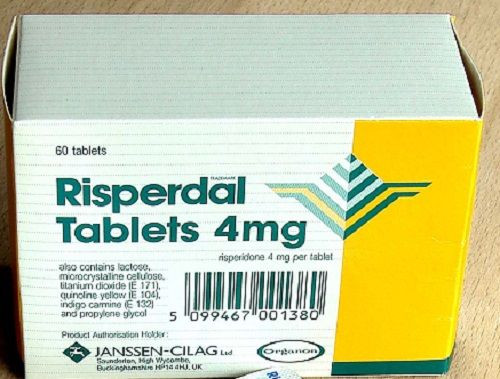Johnson & Johnson Settles Fraud Case For $2.2B; Subsidiary Allegedly Misbranded Schizophrenia Drug

Johnson & Johnson and its subsidiary, Janssen Pharmaceuticals, have agreed to pay over $2.2 billion to settle criminal and civil lawsuits alleging that the companies promoted the schizophrenia drug Risperdal (risperidone) for uses not approved as safe by the U.S. Food and Drug Administration (FDA), and that they also paid kickbacks to physicians and pharmacies in exchange for recommending and prescribing the drug.
“When pharmaceutical companies ignore the FDA’s requirements, they not only risk endangering the public’s health but also damaging the trust that patients have in their doctors and their medications,” FDA Commissioner Margaret A. Hamburg, M.D., said in a statement. “The FDA relies on data from rigorous scientific research to define and approve the uses for which a drug has been shown to be safe and effective.”
Misbranding Risperdal
Considered one of the largest health care fraud settlements in U.S. history, the sum includes $485 million in criminal fines and forfeiture and $1.72 billion in civil settlements, according to the U.S. Department of Justice. Janssen Pharmaceuticals admitted that it had promoted Risperdal for agitation treatment in elderly dementia patients soon after it was put on the market in 2002 despite having been approved by the FDA specifically for schizophrenia, and in 2003, for short-term treatment of acute mania and episodes associated with bipolar disorder.
The settlement accounts for the false claims, among other things, that resulted in millions of lost federal and state Medicaid dollars. “When companies put profit over patients’ health and misuse taxpayer dollars, we demand accountability,” Associate Attorney General Tony West said in a statement.
The U.S. Department of Justice also alleges that Janssen and Johnson & Johnson knew about the health risks associated with Risperdal use in elderly patients, including stroke and death, but chose to downplay the risks by combining negative data with other studies, making it look like the risks weren’t serious.
The FDA only allows physicians to prescribe drugs outside of their intended use without the agency’s approval. This rule, however, doesn’t apply to pharmaceutical companies, and it’s considered a violation of the law if they introduce a misbranded drug to the market without being tested for the purported use.
Separately filed civil complaints also alleged that the pharmaceutical companies promoted Risperdal and a newer antipsychotic drug, Invega, to doctors and nursing homes to help control agitation in elderly patients with dementia, but also to control behavioral disorders in children and mentally disabled. Another complaint alleges that the companies paid kickbacks to Omnicare, the country’s largest pharmacy specializing in distributing drugs to nursing homes — Omnicare paid $98 million in 2009 to settle claims that it accepted these kickbacks.
Janssen and Johnson & Johnson's Response
The FDA’s Office of Criminal Investigations was prompted to look into Janssen and Johnson & Johnson’s behavior after a whistleblower filed a complaint; however, the agency was aware that the companies had been misleading consumers with their marketing tactics for quite some time, and had repeatedly sent warnings. Still, Janssen denies any wrong doing.
“Janssen accepts accountability for the actions described in the misdemeanor plea,” the company said in a statement, according to Bloomberg. “The settlement of the civil allegations is not an admission of any liability or wrongdoing, and the company expressly denies the government’s civil allegations.”
Meanwhile, Johnson & Johnson took a less defensive tone: “Today we reached closure on complex legal matters spanning almost a decade,” Michael Ullmann, Johnson & Johnson’s general counsel, said in a statement. “This resolution allows us to move forward and continue to focus on delivering innovative solutions that improve and enhance the health and well-being of patients around the world.”
The settlement is the third largest in U.S. history. Last year, GlaxoSmithKline settled for $3 billion over its marketing of medicines such as Paxil, Avandia, and Wllbutrin, and in 2009, Pfizer settled for $2.3 billion over its marketing of the painkiller Bextra and other drugs.
Published by Medicaldaily.com



























